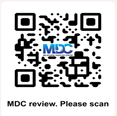Gastroscopy
The gastroscope is a thin, long, flexible tube with a tiny video camera and light on the end. By adjusting various controls on the instrument, the Endoscopist can safely guide the instrument carefully and study the inside lining of the upper digestive system. The high-quality picture from the endoscopy is shown on a TV monitor giving a concise, clear and detailed view. In many cases, upper gastrointestinal endoscopy is a more precise examination then x-ray studies.
What happens during the procedure?
During the procedure, everything will be done to help you be as comfortable as possible. The anaesthetist will monitor your blood pressure, pulse and blood oxygen levels (real time). The anaesthetist will give you a sedative to you be relaxed and drowsy resulting in NO recollection of the test. A supportive mouth piece is placed to help keep the mouth open during the procedure and once this is achieved the Endoscopist will gently manoeuvre the instrument into position. In some cases, samples of tissue (biopsy) will be taken at the time of endoscopy, this is a totally painless procedure.
Which common conditions can be diagnosed during the gastroscopy?
Oesophageal diseases - such as reflux oesophagitis, infectious oesophagitis (candida, herpes), oesophageal tumours.
Gastric (stomach) – such as gastric/stomach ulcers, tumours. Helicobacter pylori infection assessment.
Duodenal – such as duodenal inflammation/ulceration.
What happens after the procedure?
When your endoscopy is completed, you will be cared for in a special recovery area until most of the effects of medication have worn off. You will be informed about the results of the procedure and given instructions regarding how soon you can eat and drink plus other guidelines for resuming normal activities. Very rarely minor problems such as mild sore throat or bloating might persist often completely disappearing within three to four hours or less. By the time, you are ready to go home, you will feel more alert, nevertheless resting for the rest of the day particularly with no driving permitted. It would be expected that a family member or friend would take you home.

